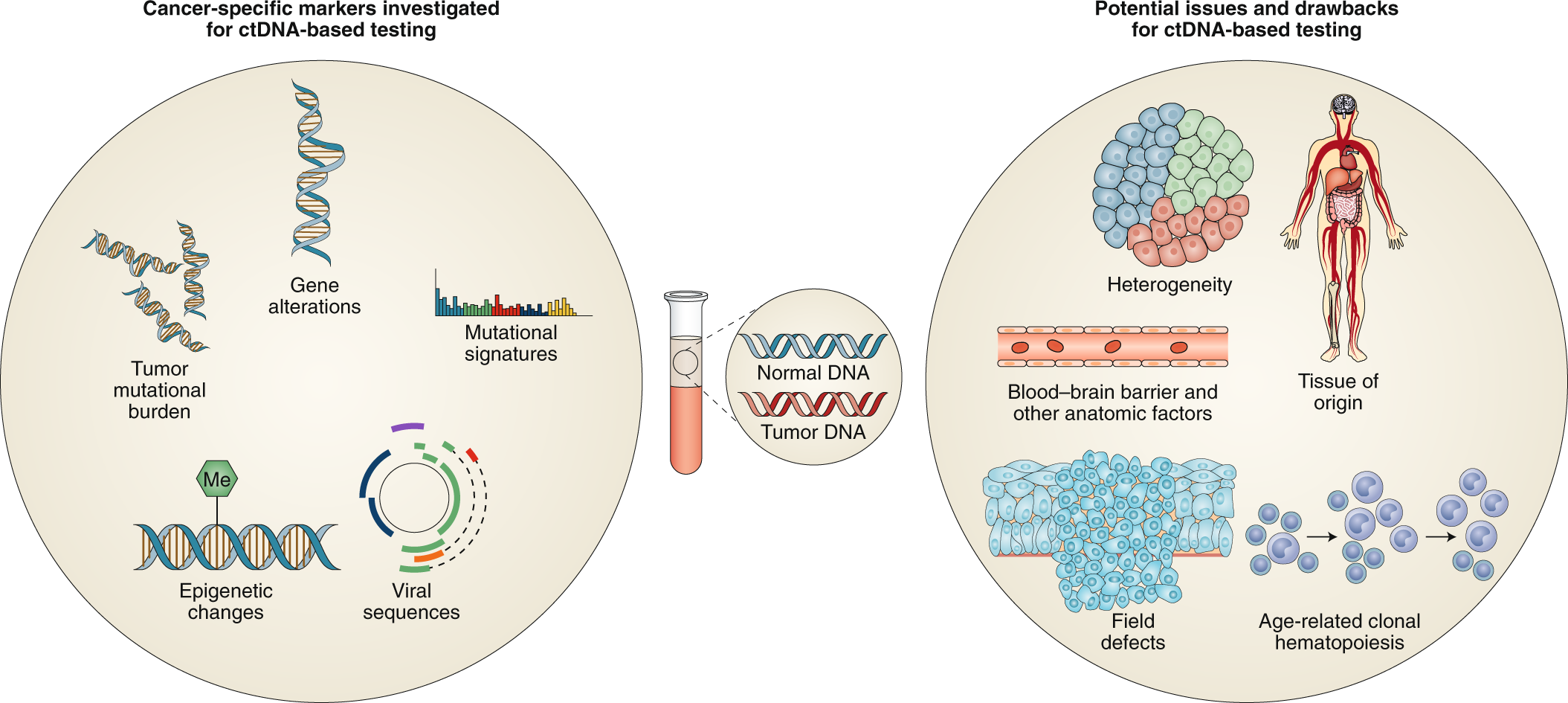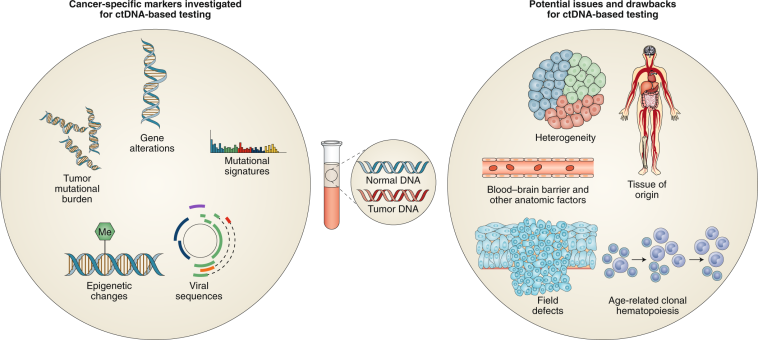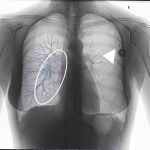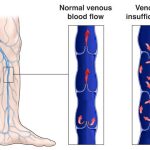
Integrative Healthcare: Where Modern Medicine Meets Alternative Therapies
In today’s fast-paced world, our healthcare system is filled with a mix of modern medicine, alternative therapies, nutrition trends, disease management techniques, and fitness practices. As an observer and advocate for balanced well-being, I believe it is high time we piece together these various elements into a coherent whole. In this opinion editorial, I will explore how embracing an integrative approach can help us tackle the tricky parts, tangled issues, confusing bits, and complicated pieces of modern health management.
The Evolving Landscape of Healthcare Choices
The choices we make for our health can sometimes seem overwhelming. From the intimidating advances in modern medicine to the nerve-racking options in alternative therapies, every path seems both promising and off-putting. In many instances, patients feel lost when they try to figure a path through the maze of treatment options.
There is a growing perception that modern healthcare is full of problems, with subtle details and little twists making every decision seem tense. However, by taking a closer look at these areas, we can see that the entire landscape is evolving to become more inclusive, integrative, and supportive of individual wellness. The goal is to make these options more transparent and accessible so that everyone can enjoy a healthier, more balanced lifestyle.
Combining Modern Medicine and Alternative Therapies
Modern medicine boasts breakthroughs in diagnostics, pharmaceuticals, and surgical procedures that have revolutionized care. At the same time, alternative therapies such as acupuncture, herbal remedies, and mind–body practices provide unique and natural methods that many patients find both calming and supportive of long-term health.
When we dig into the debate, we realize that the traditional divide between conventional and alternative medicine might be more artificial than real. In fact, many practitioners and patients have started to merge these practices in order to create a more personalized approach to health. Instead of steering through outdated boundaries, it’s time to consider how these two worlds can complement one another, with modern medicine addressing the acute phase of illness and alternative therapies supporting recovery and ongoing well-being.
- Modern Medicine: Offers advanced diagnostics, precise treatments, and research-based interventions.
- Alternative Approaches: Provide holistic perspectives by addressing the subtle parts of the body and mind, often focusing on prevention and long-term wellness.
- Integrative Therapies: Aim to combine these strategies, creating a balanced treatment plan that attends to both immediate and underlying reasons for illness.
This integrative model is gradually being embraced by healthcare practitioners around the world who believe that there is value in both sides of the spectrum. Patients, too, are increasingly seeking care that crosses these boundaries, looking for solutions that are not limited by traditional labels.
Nutritional Insights: The Building Blocks of Health
Our relationship with food continues to be one of the cornerstones of health and wellness. Yet, the myriad of dietary advice available, from everything paleo to intermittent fasting, can make it feel like the task of optimizing nutrition is loaded with issues. Today, I want to take a closer look at how we can use nutrition as an essential element in an integrative healthcare strategy.
Nutrition goes far beyond simply filling our stomachs. It is a key factor in preventing chronic diseases, maintaining fitness, and even supporting mental health. Food provides the fuel our bodies need to get through their daily challenges – and when chosen wisely, it can help mitigate many of the tricky parts and tangled issues that come with long-term illness.
Dietary Strategies for Chronic Illness Prevention
Research consistently shows that a nutrient-dense diet can be protective against conditions such as heart disease, diabetes, and certain cancers. In today’s opinion, the conversation must shift from focusing solely on weight loss to embracing nutritional strategies that promote overall health. When we talk about diets rich in whole foods, such as vegetables, fruits, whole grains, lean proteins, and healthy fats, we are really addressing the tiny details that make a big difference in long-term health.
- Whole Foods: Eating minimally processed foods ensures you get a full range of vitamins, minerals, and antioxidants that work together to support immune function and reduce inflammation.
- Plant-Based Diets: Reducing the intake of red and processed meats and increasing the consumption of plant-based proteins can lower risk factors for a myriad of diseases.
- Balanced Meals: Combining carbohydrates with proteins and fats in every meal can help maintain energy levels and stabilize blood sugar.
It’s important to weed out the overwhelming maze of fad diets and instead focus on flexible eating patterns that can be tailored to each individual. Nutritional advice should be as flexible as it is evidence-based, ensuring that everyone finds a dietary approach that fits their lifestyle without feeling scared or off-putting by strict regimens.
Understanding the Role of Micronutrients and Supplements
While the fundamentals of eating healthy are crucial, many of us might need an extra boost from specific vitamins and minerals. However, the subtle parts of nutritional science can be riddled with tension when it comes to interpreting research. The key is to support a balanced diet with supplements if needed, after consulting with a healthcare professional.
| Micronutrient | Key Benefits | Natural Sources |
|---|---|---|
| Vitamin D | Supports bone health and immune function | Sunlight, fatty fish, fortified dairy |
| Magnesium | Promotes muscle and nerve function, helps regulate blood pressure | Leafy greens, nuts, seeds |
| Omega-3 Fatty Acids | Reduces inflammation, supports brain function | Fatty fish, flaxseeds, walnuts |
The table above illustrates a few examples of how pinpointing key micronutrients in our diets can make a super important difference in managing overall health, particularly when integrated with other treatments. It is crucial to remember that while supplements can fill dietary gaps, they are not a substitute for a well-rounded diet.
Achieving a Balance Between Physical Fitness and Restorative Practices
Exercise, too, plays a super important role in an integrative approach to healthcare. Regular physical activity helps manage weight, improve cardiovascular health, and boost mental well-being. Yet, getting into a consistent exercise routine can be intimidating, especially for those who are new to fitness or have chronic conditions that complicate movement.
Tailoring Exercise Programs for Different Health Goals
The key lies in crafting a tailored physical activity plan that everyone can stick with. Instead of facing a one-size-fits-all program, consider your personal needs and physical condition. Whether you are recovering from an illness, managing stress, or simply looking to enhance your overall fitness, there are exercise regimes designed to support you without feeling overwhelming.
- Aerobic Workouts: Activities like walking, cycling, or swimming that support heart health and endurance.
- Strength Training: Light weightlifting or resistance exercises that build muscle and improve metabolism.
- Mind–Body Practices: Yoga, tai chi, or Pilates, which not only boost physical strength but also contribute to mental clarity and stress relief.
For those looking to get into a regular exercise routine, it might be helpful to start slowly—perhaps with a daily walk—and gradually build up intensity. Finding an enjoyable activity is crucial, as it transforms exercise from a nerve-racking chore into a rewarding part of your daily routine.
Restorative Practices and Their Role in Health Recovery
In addition to physical fitness, restorative practices such as meditation, deep breathing exercises, and even massage therapy provide essential support. Many of us overlook the small distinctions between physical exertion and mental recovery. However, the truth is that both are necessary for maintaining balance and long-term well-being. These practices help manage stress, improve sleep, and allow the body to repair itself, making them a must-have part of any complete healthcare strategy.
For example, mindfulness meditation not only helps clear the mind but also reduces stress hormones and improves the overall mental state. Coupling these techniques with a robust exercise regimen creates an environment where both body and mind can thrive together.
Bridging the Gap: Integrative Approaches in Real-World Healthcare
One of the most challenging bits of modern health management is figuring a path through the maze of multiple choices that can sometimes seem nerve-racking. For many, the dividing line between conventional and alternative practices appears as a stark, confusing boundary. Yet, more and more healthcare providers are finding ways to work through these boundaries, recognizing the value in each approach.
How Hospitals and Clinics Are Embracing Integrative Health
Across the globe, some of the most renowned hospitals and clinics have begun to blend modern medical techniques with alternative treatments. They have created integrative clinics where patients can receive everything from surgical interventions to acupuncture and massage within the same facility. This approach not only ensures continuity of care but also helps patients get around the siloed nature of traditional healthcare.
- Collaborative Care Models: Teams of medical doctors, nutritionists, physical therapists, and alternative practitioners come together to design personalized treatment plans.
- Patient-Centric Approaches: These models put patient needs at the center, tailoring therapies to both the condition at hand and personal preferences.
- Holistic Treatment Environments: Facilities are designed to promote healing as a whole by incorporating elements such as stress reduction techniques, environmental factors, and social support.
Such integrative models recognize that there are no one-size-fits-all solutions in healthcare. Instead, this approach is about steering through the maze of treatment options by combining the best available evidence from both conventional and alternative fields.
Challenges and Opportunities in Integrative Health Implementation
While the potential benefits of integrative health are clear, rolling out these programs on a wide scale is not without its challenges. There are regulatory hurdles, insurance complications, and a shortage of practitioners well-versed in both modern and alternative methods. Additionally, misconceptions and skepticism from both sides sometimes create a tense atmosphere where collaboration can be difficult.
Nonetheless, these challenges provide unique opportunities to innovate. By establishing clearer protocols, better communication channels, and ongoing research into the fine points of both treatment modalities, the medical community can help solve these tricky parts. Continuous dialogue, patient feedback, and interdisciplinary education are key elements that can help alleviate the nerve-racking issues associated with transforming healthcare systems.
Addressing the Overwhelming Complexity of Health Decisions
For patients, the process of deciding on a treatment plan can be confusing and intimidating, especially when faced with a mix of modern, alternative, nutritional, and fitness advice. Many people experience a real sense of overwhelm when their healthcare choices seem loaded with issues and small distinctions that are difficult to interpret. In my view, the way forward involves simplifying these choices into more manageable, understandable segments.
Breaking Down the Decision-Making Process
One practical method for handling this complex array of options is to break down the decision-making process into smaller, more digestible steps. Here are some techniques to help figure a path through this maze:
- Gather Knowledge: Consult multiple sources, including trusted health professionals, peer-reviewed research, and patient testimonials to build a well-rounded view.
- Set Clear Goals: Whether it’s pain management, improved mobility, or better mental clarity, defining your health goals can help narrow your choices.
- Evaluate Options: List the pros and cons of each treatment option, including potential side effects, costs, and long-term benefits.
- Seek Integrated Guidance: Work with integrative health coaches or practitioners who are experienced in multiple disciplines to craft a personalized plan.
By breaking down the health decision process into these manageable steps, patients can better steer through options without feeling overwhelmed by confusing bits and nerve-racking choices.
Patient Empowerment in the Era of Information Overload
Today, the sheer volume of information accessible online is both a blessing and a curse. On one hand, patients have unprecedented access to data about their conditions and treatment options. On the other, sifting through the tangled issues and subtle details of this information can be challenging. Patient empowerment through education is key.
One approach is to encourage patients to attend workshops, webinars, or one-on-one counseling sessions that focus on integrative medicine. These sessions can help individuals identify their unique needs while clarifying the small distinctions between various treatment options. With a clearer picture in mind, making informed decisions feels less like navigating a maze and more like steering through familiar terrain.
The Future of Healthcare: Personalization and Prevention
Looking forward, the future of healthcare is undoubtedly oriented towards personalization and prevention. The best healthcare strategies today are those that not only address current symptoms but also work proactively to prevent disease. By integrating modern medical techniques with alternative therapies, nutritional science, and fitness, we stand a far better chance against chronic diseases and emergent health threats.
Personalized Treatment Plans: One Size Does Not Fit All
Every individual is unique, and so are their health challenges. Personalized treatment plans that consider genetic predispositions, lifestyle, and environmental factors are gaining traction. Instead of sticking to standardized treatments, many health professionals now advocate for customized programs that address the nitty-gritty and subtle parts of each patient’s situation.
- Genetic Testing: Modern medicine is making strides in identifying genetic markers that can signal predispositions to certain conditions, allowing for early interventions.
- Lifestyle Analysis: Incorporating assessments of diet, stress levels, and exercise habits can help construct a more refined therapeutic strategy.
- Integrative Consultations: Meetings that include both conventional and alternative medicine experts ensure that the treatment plan is well-rounded, addressing the fine points of both approaches.
This personalized approach not only improves treatment outcomes but also instills confidence in patients, who feel more in control of their health journey. It transforms the healthcare experience from a one-size-fits-all service into a bespoke solution that truly respects the individual’s lifestyle and preferences.
Prevention as a Cornerstone of Well-Being
Perhaps one of the most promising shifts in modern healthcare is the growing emphasis on prevention. By adopting a proactive rather than reactive approach, we can work to reduce the incidence of chronic illnesses that weigh heavily on both individuals and health systems. This forward-thinking approach involves:
- Lifestyle Modifications: Simple changes in diet, exercise, and stress management can mitigate many risks before they develop into full-blown conditions.
- Regular Screenings: Early detection through routine tests and check-ups can identify potential health issues before they become overwhelming.
- Holistic Health Education: Empowering individuals with practical knowledge about their bodies helps create a community that is better equipped to tackle health challenges head-on.
By framing health as a continuous journey rather than an isolated set of events, we begin to see prevention not just as a medical protocol but as a lifestyle – one that integrates the best of modern insights, alternative wisdom, nutritional mastery, and physical well-being.
The Role of Mental Health in an Integrative Approach
Mental health is often the missing piece in discussions about overall well-being. In many cases, the mind and body are so intertwined that neglecting mental health can hinder physical recovery. Whether facing the nerve-racking stress of daily life or the subtle strains of emotional challenges, addressing mental health is super important in any integrative healthcare strategy.
Mental Resilience: Combining Therapy, Meditation, and Lifestyle Changes
Building mental resilience involves a combination of conventional psychological therapies and alternative practices such as mindfulness and meditation. Modern therapy techniques, including cognitive behavioral therapy (CBT) and other evidence-based approaches, have shown remarkable results in managing stress, depression, and anxiety. When these methods are supplemented with practices like deep breathing, yoga, or even creative arts, they provide a comprehensive treatment that addresses both the overt and hidden complexities of mental well-being.
- Talk Therapy: Effective for addressing both immediate emotional distress and long-term mental habits.
- Mindfulness Practice: Helps the mind focus on the present, reducing overall stress and fostering a positive outlook.
- Community Support: Engaging with support groups or wellness communities can provide encouragement and practical advice for managing day-to-day pressures.
By combining traditional mental health care with alternative practices, patients can achieve a balance that fully addresses the mind-body connection. This approach ensures that mental health is not relegated to a side concern but is recognized as an integral component of personal health.
Overcoming Barriers to an Integrative Health Approach
Despite growing enthusiasm for integrative healthcare, several barriers still stand in the way of full implementation. Issues such as cost, access to care, and the ongoing struggle to merge differing paradigms present tricky parts and tangled issues that need resolving.
Improving Access to Comprehensive Care
One of the main challenges is ensuring that every patient has access to a full spectrum of care options. In many communities, particularly those in rural areas or underserved regions, patients face significant hurdles in reaching providers who combine modern and alternative approaches. To bridge these gaps, it is necessary for policymakers, insurers, and the medical community to collaboratively figure a path toward more inclusive care.
- Telemedicine Services: Modern technology can help bring integrative care to patients wherever they are, reducing the barriers of distance and availability.
- Sliding Scale Clinics: Financial assistance and community-funded programs can ensure that even those with limited resources receive high-quality care.
- Education and Outreach: Increasing public awareness about the benefits of integrative health can help to demystify alternative therapies while validating modern treatments.
By improving access and encouraging community-based solutions, we can move closer to a healthcare system where everyone benefits from the fusion of conventional and alternative approaches.
Bridging the Knowledge Gap Between Disciplines
Another significant barrier is the knowledge gap that often exists between professionals trained in modern medicine and those with expertise in alternative therapies. Overcoming these subtle differences requires concerted efforts towards interdisciplinary education and communication. Medical schools, professional conferences, and ongoing training workshops are essential tools in helping practitioners of all backgrounds get around the barriers that separate their approaches.
Initiatives such as integrative medicine fellowships and cross-disciplinary research projects have already begun to take shape in various parts of the world. With continued momentum, such programs can help create a future where healthcare is truly seamless, combining the best of all available insights for improved patient outcomes.
Conclusion: Charting a Course for a More Balanced Future
In conclusion, the path ahead for healthcare is one replete with opportunities to merge the strengths of modern medical practices with the holistic benefits of alternative therapies, nutritional science, and fitness and mental health practices. While the journey may seem full of confusing bits and nerve-racking challenges, every step taken towards integrative care represents a move towards a more balanced, enlightened, and effective healthcare system.
Today, we have the awareness, the technology, and the passion to forge a system that does not force a choice between competing treatment modalities. Instead, we can embrace a model that is as flexible as it is innovative — one that recognizes the importance of fine details, acknowledges the twist and turns of health challenges, and ultimately prioritizes well-being above all else.
The integrative approach to healthcare calls on all of us — individual patients, workers in the medical field, policymakers, and community leaders — to step forward and advocate for a system that is more inclusive, compassionate, and personalized. By working together and staying informed, we can break down old silos, simplify complex decisions, and pave the way for a future where everyone has the opportunity to thrive.
Let us view our health not as a series of isolated problems to be fixed, but as a vibrant, interconnected network where modern science and ancient wisdom meet. It is through this blend of the tried-and-true and the novel that we can truly find our way to a healthier, happier society.
In embracing these ideas, we signal to the world that the future of healthcare is not about choosing sides, but about integrating the many available approaches to enrich our lives, prevent disease, and support a well-rounded, sustained vitality for all.
Ultimately, our challenge is to actively work through the obstacles, learn from each other, and continually refine our own personal definitions of health and well-being. Whether you are a long-time advocate for modern medicine, a firm believer in alternative practices, or someone simply searching for ways to improve daily health routines, remember that every effort to harmonize these strategies is a step toward a more balanced future.
Now is the time to take charge of our health journeys by making informed, personalized decisions that reflect a synthesis of modern insights, natural techniques, and lifestyle adjustments. In doing so, we not only improve individual lives but also contribute to a broader transformation in healthcare—a transformation that places holistic well-being at the heart of all we do.
Let this editorial serve as a call to action—to researchers, practitioners, and patients alike—to continue exploring, experimenting, and refining integrative care. The journey can be challenging, and at times the twists and turns may seem intimidating, but by breaking down the tangled issues and tackling the confusing bits head-on, we can design a healthcare system that is resilient, adaptive, and above all, centered on the true purpose of care: to heal, empower, and nurture life.
As we move forward, let’s remain open to learning from each other, willing to broaden our perspectives, and united in our common goal: a healthier tomorrow built on the solid foundation of integration, knowledge, and compassion.
In the end, making your way through the diverse and ever-changing landscape of healthcare is not a solitary endeavor; it is a collective journey. One where every informed decision and every interdisciplinary collaboration brings us one step closer to a future where our bodies, minds, and communities are as interconnected and resilient as the integrative healthcare model we all aspire to achieve.
Originally Post From https://firstwordpharma.com/story/5980241
Read more about this topic at
Get started with Help me write in Chrome
My final paper was triggered the AI detector of Turnitin by …


